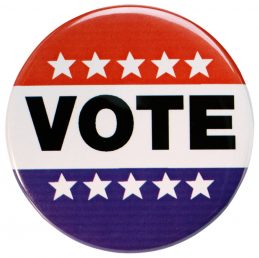Climate change/environmental justice emerges as top election issue at National Student Issues Convention

Over 80 University of Illinois Chicago students were among more than 300 college and university students from 11 states who met last week for the National Student Issues Convention.
The annual event, which was held via Zoom because of the COVID-19 pandemic, provides students the opportunity to debate with their peers, collaborate to develop an agenda, convey the most important issues for them in the elections, and for candidates and public officials to respond.
“In small-group Zoom sessions, the students were given an opportunity to advocate for the issue they deemed most important,” said Dick Simpson, UIC professor of political science and a coordinator of the convention. “While in small groups, the students voted to nominate three issues to go before the full convention where they evaluated all of the nominated issues and voted again to select the most important.”
After consideration of more than 15 issues, 19.5% of the students selected the combined concern of climate change-environmental justice as their most important political issue for them in the Nov. 3 elections. The second most important issue was education reform, which included a call for broadening access to higher-quality education and reduction of student loan debt.
Rounding out the students’ top six issues were affordable health care (13.8%); police brutality and criminal justice reform (13%); racism and racial equality (11.8%); and COVID-19 relief and future pandemic planning (9.7%).
“The students seriously evaluated and discussed the issues and the two-step voting process allowed the group to reach agreement on the top six issues,” Simpson said. “The final top issues, indicated student concerns in this election and demonstrate the serious commitment of all students to critical issues facing the country.”
Other issues selected by students but receiving less than 10% percent of votes were income inequality, improving civic education, accountability and better representation in America, gun control, campaign finance reform, term limits, the role of higher education institutions in their communities and local control of education.
The student issues were then addressed directly by U.S. Representatives Raja Krishnamoorthi of Illinois and Debbie Dingle of Michigan, who promised to promote the student concerns in the U.S. Congress.
Colleges and universities with more than one student participant in the convention included California State University; Elmhurst University; College of DuPage; Truman Community College; Indiana University South Bend; Towson University; Henry Ford Community College; Oakland Community College; University of Michigan, Ann Arbor; University of Michigan, Dearborn; Wayne State University; Rutgers University, New Brunswick, Trenton and Newark; East Carolina University; Bowling Green State University; and Houston Community College.
Categories
